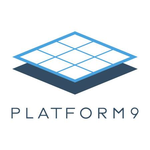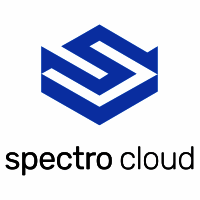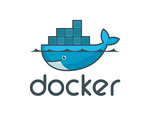What Is Container Management Software?
One effective technology that makes managing containers in a computing environment easier and more efficient is container management software. This program gives users a single platform to manage their containerized apps by managing container deployment, scalability, and orchestration. The ability of container management software to automate processes like load balancing, resource allocation, and health monitoring is one of its primary strengths, guaranteeing the seamless and effective operation of applications.
Additionally, it makes it simple to containerize apps, turning them into standalone, portable entities that can be set up and controlled on their own. Advanced security capabilities are also provided by container management software to safeguard the containers and the programs that operate inside of them. It gives users the flexibility to configure encryption, vulnerability screening, and access controls, guaranteeing the constant security of their data and apps.
Additionally, this program has strong analytics and monitoring features that give users up-to-date information on the functionality and condition of their containers. This aids in the prompt identification and resolution of problems, avoiding any downtime and guaranteeing the uninterrupted provision of their services. Additionally, container management software facilitates integration with other platforms and tools, enabling smooth deployment and cooperation across a range of settings.
Because of its adaptability, it is a crucial tool for businesses using a DevOps methodology for software development. Container management software is now an essential tool for businesses of all sizes due to the growth of cloud computing and the growing usage of containers in contemporary software development. It is essential for companies looking to stay ahead in the cutthroat market of today since it streamlines container management, boosts productivity, and encourages quicker innovation.
What Are The Recent Trends In Container Management Software?
Software development teams have been using container technology more and more in recent years. In order to facilitate the deployment and management of containers, there has been an increase in the need for container management software. The market for container management software has also been changing in response to this need, with new developments and trends appearing.
We will examine some of the most recent developments in container management software in our buyer's guide, which every potential customer should be aware of.
1. Growing Adoption Of Kubernetes: Kubernetes has become the de facto standard for container management and the top container orchestration platform. Users may now deploy and manage their containers on Kubernetes clusters with ease thanks to the addition or enhancement of support for Kubernetes by numerous container management software providers.
2. Pay Attention To Security: Strong security measures are becoming more and more necessary as containerization gains traction. To protect containers and the data they contain, container management software is increasingly integrating security capabilities like encryption, vulnerability assessment, and access control.
3. Integration With DevOps Tools: DevOps has become crucial for continuous delivery in the current fast-paced software development environment. Vendors of container management software are keeping up with this trend by connecting their platforms with well-known DevOps tools, giving developers and deployment teams a smooth workflow.
4. Integration With Public Cloud Providers: For their container workloads, many businesses are already taking advantage of the advantages offered by public cloud providers. As a result, companies that sell container management software have teamed up with public cloud providers to facilitate smooth deployment and integration on their systems.
5. Application Of Machine Learning (ML) And Artificial Intelligence (AI): These technologies are being integrated into container management software to automate processes like resource allocation and scaling. This makes it possible to manage container resources more effectively and optimally.
6. Multi-Cloud Support: Container management software now has tools to manage container deployments across different cloud platforms due to the growth of hybrid and multi-cloud settings. Users now have greater options for where to run their containerized apps.
7. CaaS, Or container-as-a-service Offerings: CaaS, a managed container service that lets users concentrate on developing applications rather than worrying about the underlying infrastructure, is now available from container management software providers. For small and medium-sized enterprises without the capacity to oversee their own container infrastructure, CaaS solutions are perfect.
Benefits of Using Container Management Software
For companies that use container technology to manage their applications, container management software is a crucial tool. It makes managing large-scale containerized applications easier for teams by streamlining and simplifying container deployment, monitoring, and orchestration. Using container management software has the following main advantages:
1. Simplifies Deployment: By automating the deployment process, container management software speeds up and improves efficiency. By doing away with manual processes like server provisioning and configuration, it saves time and lowers the possibility of mistakes.
2. Improves Scalability: Companies may swiftly scale their apps up or down in response to workload demands by utilizing container management software. This adaptability removes the possibility of overprovisioning and guarantees that resources are being used effectively.
3. Enhances Resource Management: Teams may more simply assign and manage resources for their containerized apps thanks to the software. Businesses may optimize their infrastructure and cut expenses by using the data it offers regarding resource utilization.
4. Assures Consistency: From development to production, programs are consistently distributed across several environments thanks to container management tools. This lessens the possibility of inconsistencies or mistakes brought on by manual procedures.
5. Centralized Management: Teams may oversee all of their containers from a single platform by using container management software. This streamlines the entire administration process by making monitoring, troubleshooting, and updates easier.
6. Promotes Collaboration: Several teams can work together on the same containerized application thanks to container management tools. This encourages improved teamwork and communication, which raises output and efficiency.
7. Offers Security: Security features like encryption and access controls are frequently included into container management software. Businesses may rest easy knowing that applications and the data they are linked to are protected.
8. Boosts Portability: Applications can operate on any platform that supports containers thanks to container management software, which makes them incredibly portable. This eliminates incompatibilities and makes it simple for enterprises to move between environments.
9. Reduces Expenses: Businesses can save a lot of money on infrastructure, time, and resources by utilizing container management software's automation and efficiency. Additionally, it enables companies to make the most of their current assets, which lessens the demand for new hardware.
Important Factors to Consider While Purchasing Container Management Software?
Since container management software is essential for managing and deploying apps in a containerized environment, there are a number of important factors to take into account when making a purchase. It's critical to thoroughly assess the options available as the container management software industry expands to make sure the solution you select satisfies your unique business demands and specifications.
We will list the most crucial elements to take into account when investing in container management software in our buyer's guide.
1. Compatibility With Your Container Platform: The compatibility of the container management software with the container platform of your choice should be your top priority. It is important to make sure that your chosen software interacts well with your current infrastructure because different container management solutions could perform better on particular platforms.
2. Scalability And Flexibility: To manage their quickly expanding workloads, the majority of organizations rely on containerization. As a result, selecting container management software that can meet your present and future requirements is crucial. To add or remove containers as needed without sacrificing performance, look for a solution that provides both scalability and flexibility.
3. User-Friendly Interface: Even non-technical team members can manage and keep an eye on containers with ease when the interface is user-friendly. An straightforward interface with simple dashboards, visualizations, and controls is a must for any decent container management program.
4. Automation Capabilities: Automation is one of containerization's main advantages. When assessing container management software, look for strong automation features that help streamline and expedite container deployment and management.
5. Security Features: To safeguard your data and apps, container management software should have sufficient security features. To keep your containers safe, look for features like encryption, role-based access control, and image vulnerability scanning.
6. Integration With Other Tools: The integration of your selected solution with other tools in your stack is crucial, since container management is only one component of your complete IT infrastructure. Choose software that works in unison with your orchestration, logging, and monitoring solutions.
7. Assistance And Maintenance: Your container management software's seamless operation depends on dependable technical assistance and maintenance. Examine the vendor's support options, including training, documentation, and customer service channels, before making a purchase.
8. Pricing Structure: Lastly, the container management software's pricing structure must be taken into account. While some solutions demand a fixed fee, others offer a pay-as-you-go basis. Make sure to evaluate your financial situation and select a solution that provides the most value.
What are the key features to look for in Container Management Software?
Having the appropriate software is essential for efficiency and organization when it comes to container management. There are currently many different solutions for Container Management Software (CMS) due to the growing popularity of containerization. However, what distinguishes a great CMS from the others? The following are the main characteristics to search for while contemplating CMS for your company's requirements:
1. Scalability: Your use of containers will increase as your company expands. Choose a CMS that can scale up or down without affecting functionality.
2. Support For Multiple Platforms: Given the abundance of container platforms, it's critical to select a CMS that can support multiple platforms, like Docker and Kubernetes.
3. Resource Management: Your containers' performance and cost-effectiveness can be greatly impacted by your capacity to track and control resources like CPU, memory, and storage.
4. Container Orchestration: For the best deployment and administration, the capacity to plan, orchestrate, and cluster containers is essential.
5. Security: Businesses are very concerned about container security, and a decent CMS should have capabilities like image vulnerability scanning, secure registries, and access control.
6. Automation: Making use of automation can minimize human configuration errors and save time. Seek out a CMS that has the ability to automate processes like scalability, backups, and upgrades.
7. Analytics And Monitoring: Having strong analytics and monitoring tools that can offer information on container usage and performance is essential to making sure your containers are operating efficiently.
8. User-Friendly Interface: The CMS's usability and uptake, particularly for non-technical users, can be significantly impacted by an intuitive and user-friendly interface.
9. Integration Capabilities: A smooth workflow depends on compatibility with various platforms and products. Examine the ability to integrate with solutions like pipelines for continuous integration and delivery (CI/CD).
10. Support And upgrades: To guarantee that your CMS is always current and operational, pick one with a dependable support staff as well as frequent upgrades and bug patches. You can guarantee a seamless and effective container deployment experience for your company by considering these important factors when choosing a CMS for your container management requirements.
Why Do Businesses Need Container Management Software?
Businesses that use containers in their development and deployment processes need to have container management software. Organizations now need to effectively manage and orchestrate their containerized environments due to the growing popularity of containerization. The following are some main justifications for why companies want container management software:
1. Simplified Deployment Process: Companies can quickly and simply deploy apps on any platform, including servers, virtual machines, and the cloud, by using container management software. This lowers the possibility of problems occurring during the deployment process and does away with the necessity for manual configuration.
2. Effective Resource Use: Due to their portability and small weight, containers are simple to shift from one setting to another. Businesses can save money and increase productivity by running numerous applications on a single server and optimizing resource use with container management software.
3. Simplified Management: Companies can simply monitor and manage their host computers, virtual machines, and containers from a single interface with the aid of container management software. Better control and visibility over the entire containerized ecosystem are made possible, and the complexity of maintaining numerous environments is lessened.
4. Scalability And Flexibility: Companies may swiftly scale their application environments to meet their needs with the help of container management technologies. Businesses may adjust to shifting demands and guarantee that their apps are always accessible to their users by simply adding or removing containers.
5. Resource Separation Anad Security: Containers guarantee that every application operates in a separate, isolated environment by utilizing a resource separation method. This adds another degree of protection, making it more difficult for a single container to damage the system as a whole. The security of the container environment is further improved by features like image signing and role-based access control that are provided by container management software. All things considered, container management software provides companies with a number of advantages, ranging from enhanced security and flexibility to cost savings and higher efficiency. It is an essential tool for contemporary software development and implementation, helping companies to maintain their competitive edge in the market today.
How Much Time Is Required to Implement Container Management Software?
One of the first things that may cross your thoughts when thinking about putting container management software into practice is how long the procedure will take. The intricacy of the system and the particular software being used will determine the answer to this question. However, the average time to completely integrate container management software can range from a few weeks to a few months.
Assessing the current IT infrastructure and identifying any adjustments or modifications that are required is the first step in putting container management software into place. This may entail assessing software compatibility, hardware capabilities, and network capabilities. It can take a few weeks to finish this preliminary evaluation because it is crucial to fully comprehend the current system before making any modifications.
The software must then be installed and set up to meet the particular requirements of the company. The intricacy of the software and the quantity of containers that must be managed will determine how long this procedure takes. This phase may take a few weeks to many months, depending on the organization's size and the quantity of containers.
The software must be tested once it has been installed and configured to make sure it is operating correctly and achieving the intended goals. Since it is essential to fully test every component of the software, this testing process may take several weeks to finish. Rolling out the program to the company is the last stage once testing is finished.
This entails educating staff members on the software's use and incorporating it into their regular duties. The size of the organization and the degree of training needed will determine how long this step takes.
What Is the Level of Customization Available in Container Management Software?
A technology called container management software makes it easier to install and manage containers, which are virtualized software packages that come with everything needed to operate an application. The degree of customisation offered is a crucial factor to take into account while looking for the best container management system. The overall efficacy and efficiency of your containerized environment might be significantly impacted by this issue. Different providers of container management software offer varying degrees of customization. While some might provide a large number of adjustable features, others might only offer a few. Here are the main things to think about when it comes to container management software customisation to help you make an informed choice.
1. Orchestration Of Containers: Container orchestration is a key component of container management software. It describes the automation of containerized application deployment, scaling, and management. Depending on the software supplier, this aspect's degree of customization may differ. While some might have limited or preset orchestration methods, others might let you tailor the process to your own requirements.
2. Management Of Resources: The degree of resource management customization that is accessible is another crucial factor to take into account. This includes managing resource allocation for various containers and establishing resource constraints. While some container management software may have preset resource allocation settings, others may offer more intricate and granular control over resource management.
3. Features Of Security: To safeguard your containerized apps, container management software should also have strong security measures. There are many levels of customization available in this area; some have sophisticated security features that can be adjusted to meet your unique needs. These could include network policies, encrypted communication between containers, and access controls.
4. The User Interface: When it comes to managing and keeping an eye on your containers, the user interface of container management software is essential. The degree of user interface customisation may have an impact on the software's usability and effectiveness. While some providers might have a more generic and constrained interface, others might have one that is more flexible and easy to use.
5. Combining Other Tools: Other tools in your environment should be able to easily integrate with container management software. Different providers may offer varying degrees of customisation in this area; some may offer strong integration options that let you connect with your current workflows and tools. Others might not be able to integrate as well.
Which Industries can benefit the most from Container Management Software?
For businesses that depend on containers for the storage and delivery of goods, container management software has become an essential tool. The usage of containers has grown dramatically with the expansion of e-commerce and international trade, making effective container management a primary concern for companies.
We'll look at which sectors stand to gain the most from container management software and how this technology may help them run their businesses more efficiently in our buyer's guide.
1. Shipping And Logistics: Probably the most evident user of container management software is the shipping and logistics sector. Having a system in place to effectively track and handle the thousands of containers that are transported daily between ports, ships, trucks, and trains is essential. Real-time visibility and position tracking of containers are made possible by container management software, which enables shipping companies to make quicker and more informed decisions, guaranteeing on-time delivery and preventing expensive delays.
2. Retail And E-commerce: In today's hectic retail and e-commerce environment, prompt product delivery is essential to meeting consumer needs. Retailers and online retailers may follow their shipments from the place of origin to the destination with the help of container management software. In addition to guaranteeing on-time delivery, this enables companies to optimize their supply chain procedures, lowering expenses and increasing effectiveness.
3. Manufacturing: To cut expenses and boost productivity, the manufacturing sector frequently uses a just-in-time inventory system. Manufacturers can simply monitor the arrival of containers containing components or raw materials with container management software, ensuring that they are ready for manufacturing when needed. In addition to reducing the impact on their production schedule, this real-time visibility assists manufacturers in spotting possible delays and taking remedial action.
4. Food And Beverage: Container management software has a lot to offer the food and beverage sector as well. This firm needs a dependable system to handle its containers since perishable commodities need to be delivered on time and under rigorous temperature controls. Businesses can maintain the quality and freshness of their products throughout shipment by using container management software to keep an eye on the temperature, humidity, and other environmental factors inside their containers.
5. Chemical And Pharmaceutical: Container management software is essential for businesses that handle sensitive goods and hazardous commodities, such as chemicals and medicines. In order to make sure that these items are handled carefully and reach their destination without incident, the program can track and monitor the containers that are carrying them.
Conclusion
In conclusion, it is critical to carefully compare the features, capabilities, and costs of different solutions when thinking about buying container management software in order to choose which one best suits your company's requirements and financial constraints. First and foremost, ascertain your organization's unique requirements, including the quantity of containers, compatibility with operating systems, and degree of automation needed.
This will assist in reducing your alternatives and guarantee that the software you select satisfies your unique needs. Take into account the software's adaptability and scalability as well. You will require a container management system that can adapt to your changing requirements as your company expands and changes. Choose a platform that supports several platforms and technologies, facilitates easy scaling, and integrates with other tools.
The software's security is yet another important factor to take into account. Selecting a container management solution that puts security first and has features like encryption, vulnerability monitoring, and access controls is essential given the increase in cyberthreats. Additionally, thoroughly examine the programs and pricing structures that various companies provide. Make sure the pricing structure fits your budget and anticipated usage, and be mindful of any hidden costs.
Your whole software experience can be significantly impacted by the vendor's level of training and customer service, so it's also important to take that into account. Finally, to learn more about the software's functionality, dependability, and general user satisfaction, read reviews and ask other companies in your sector for advice. You may choose the finest container management software for your company by considering these considerations and making an informed choice.






















